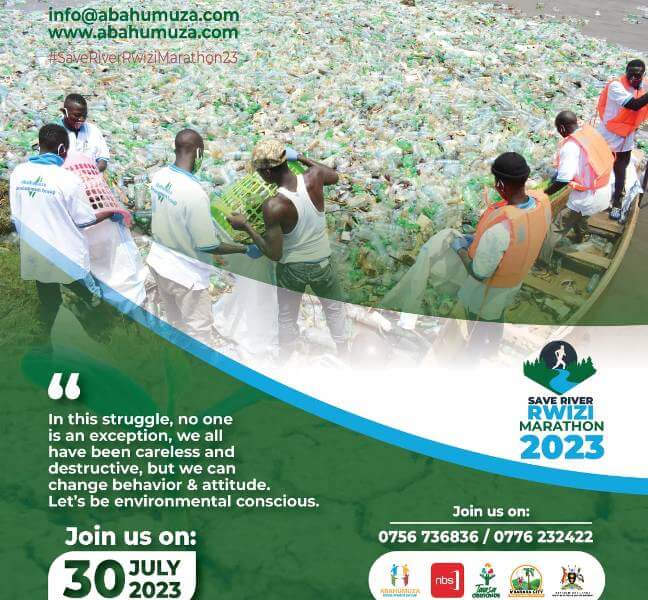Uganda, a country blessed with awe-inspiring landscapes and abundant natural resources, faces a daunting environmental challenge that puts its very lifeline at risk-water contamination. Among the water bodies suffering from this grave issue,
River Rwizi stands as a poignant example of the devastating consequences of neglecting nature’s preservation. As this once majestic river suffers with pollution, it serves as a wake-up call for all Ugandans to urgently safeguard their precious ecosystems and water sources.
River Rwizi, the once symbol of life and prosperity for communities residing along its banks in Rakai, Lyantonde, Isingiro, Lwengo, Kiruhura, Mbarara, Bushenyi, Buhweju, Sheema, and Rubirizi, are now battling with the destructive effects of contamination. Rapid industrialization, unregulated waste disposal, and inadequate environmental policies, have allowed toxic substances to find their way into the river’s waters. As factories continue to discharge, untreated waste, agricultural runoff, and urban sewage further exacerbate the problem.
The consequences of water contamination are far-reaching. Aquatic life is severely impacted, with fish populations declining and aquatic plants struggling to survive.
This disruption, in turn, affects the livelihoods of fishermen and farmers who rely on the river’s resources for sustenance and income. Moreover, the health of communities depending on the river for drinking water is at risk due to the presence of harmful chemicals and pathogens.
The plight of River Rwizi reflects the collective failure to prioritize environmental responsibility. The blame is not solely on industries; but individuals, communities, and the government all share a role in this unfolding crisis.
However, we also possess the power to change the trajectory and restore the river to its former glory.
Seth Murari, one of the founders of Abahumuza Development Group, aptly said, “It has become increasingly clear that the fate of River Rwizi is at stake. Excessive human activities like sand mining, erosion caused by farming on the shores of the river, creation of water diversions, waste disposal, and planting of unwanted species along the shores, are among the activities exposing the river to greater environmental hazards.”
In a commendable effort to address the issue, the Abahumuza Development Group in partnership with Lato Milk, National Water and Sewerage Cooperation, and other stakeholders, are championing the call to Ugandans to join the environmental cause and save River Rwizi in the “Save River Rwizi Marathon 2023,” scheduled for July 30th in Mbarara City. This endeavor is not the responsibility of a few; it is a collective call to preserve the only water body in Mbarara.
The Abahumuza Development Group is also taking the initiative to sensitize communities and create awareness to protect nature for future generations.
As Murari rightly emphasized, “Local communities play a crucial role in the protection and preservation of their natural resources. By organizing community clean-up drives, implementing proper waste management systems, and encouraging sustainable practices, we can make a significant impact on the health of our rivers and ecosystems.”
River Rwizi serves as a heartbreaking reminder that our actions today determine the fate of our environment tomorrow. Water contamination is a pressing issue that requires immediate attention and collective action. As Ugandans, we have a moral obligation to protect our precious natural resources for the well-being of future generations.
Let us heed the call of River Rwizi and rise to the occasion. By educating ourselves and others, engaging our communities, advocating for sound policies, encouraging sustainable practices, and fostering collaboration, we can create a healthier and more sustainable Uganda. Together, we can protect our environment, preserve our water sources, and ensure a brighter future for all. The time to act is now.















